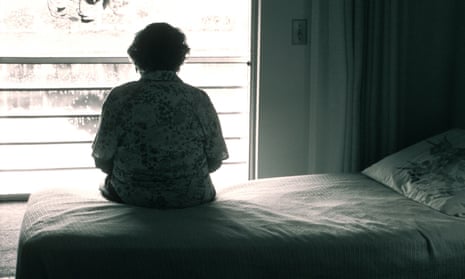Half a million people over the age of 60 usually spend each day alone, with no interaction with others, and nearly half a million more commonly do not see or speak to anyone for five or six days a week, a poll suggests.
Age UK, which commissioned the research, said the results highlighted a growing number of chronically lonely older people, which was placing increasing demand on health services.
The charity has been running a pilot programme in eight areas where Age UK groups have been actively trying to identify lonely older people and offer them companionship.
Caroline Abrahams, Age UK’s charity director, said: “This new analysis shows that about a million older people in our country are profoundly alone, many of whom are likely to be enduring the pain and suffering of loneliness.
“That’s why the early results of our pilot programme into tackling loneliness in later life are so important: nine in 10 older people who were often lonely when they started the programme were less lonely six to 12 weeks later, with many also saying they felt generally happier, more confident and more independent as a result.
“Unfortunately, there is no simple solution for loneliness, but our pilot programme shows we really can make a difference and provides crucial insights into how the problem can be successfully overcome.”
The Age UK groups worked with local people such as hairdressers, shopkeepers and faith groups to help identify older people experiencing or at risk of loneliness.
They developed networks with professionals in voluntary and statutory services, such as GPs, practice and community nurses, social workers and police community support officers. Age UK has also developed a loneliness heat-mapping tool, which assesses risk factors such as age, marital status and number of household members.
People identified as lonely by Age UK groups were provided with telephone support and short-term, face-to-face companionship, with the aim of helping them reconnect with their communities.
Many were introduced to existing social groups, such as lunch clubs. Others were enabled to set up their own social networks, via introductions to people with similar interests, or via IT skills enhancement that allowed them to use Skype to stay in touch with friends and family.
“We dare to hope that our pilot programme contains the seeds of a new grassroots movement with the potential to transform lonely older people’s lives for the better,” Abrahams said.
The results will feed into Age UK’s submissions to the commission on loneliness, devised by the Labour MP Jo Cox before she was murdered last year by the far-right terrorist Thomas Mair.
The research agency TNS polled UK residents aged over 60, asking them how many days a week they usually spent alone with no visits or telephone calls. Out of 2,241 people, 91 said they spent seven days on their own and 80 said five or six days. The results were then extrapolated to reach the national figures.
